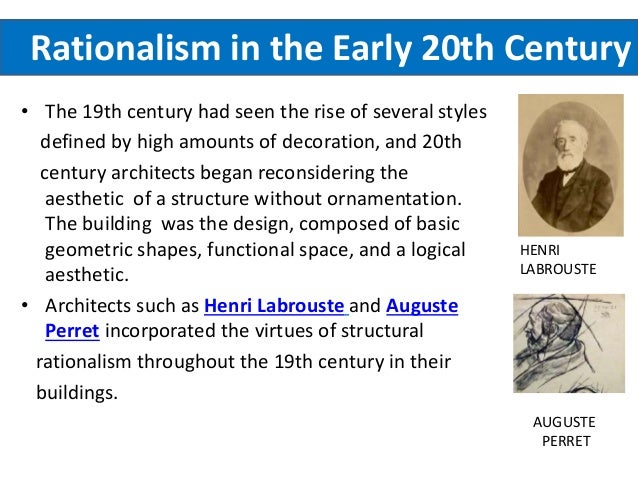20th Century European Rationalism. Rationalism Rationalism or a belief that we come to knowledge through the use of logic and thus independently of sensory experience was critical to the debates of the Enlightenment period when most philosophers lauded the power of reason but insisted that knowledge comes from experience. In architecture rationalism is an architectural current which mostly developed from Italy in the 1920s-1930s.

Based on this description when we think about the role of Nationalism in Europe during the 20th century we are inclined to remember that the strong feelings of nationalism ultimately came to define the attitudes of people during this time in Europe. FREE shipping on qualifying offers. The Spanish philosopher Miguel de Unamuno y Jugo in his 1913 book The Tragic Sense of Life in Men and Nations emphasized the life of flesh and bone.
Vitruvius had claimed in his work De Architectura that architecture is a science that can be comprehended rationally.
Based on this description when we think about the role of Nationalism in Europe during the 20th century we are inclined to remember that the strong feelings of nationalism ultimately came to define the attitudes of people during this time in Europe. In the first decades of the 20th century a number of philosophers and writers explored existentialist ideas. 1854904051 - 20th Century European Rationalism by Steele James - AbeBooks. In the 20th century such rationalism met with a new and unexpected difficulty presented by quantum mechanics.